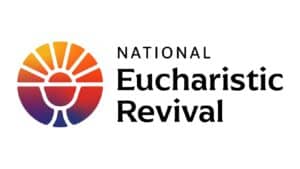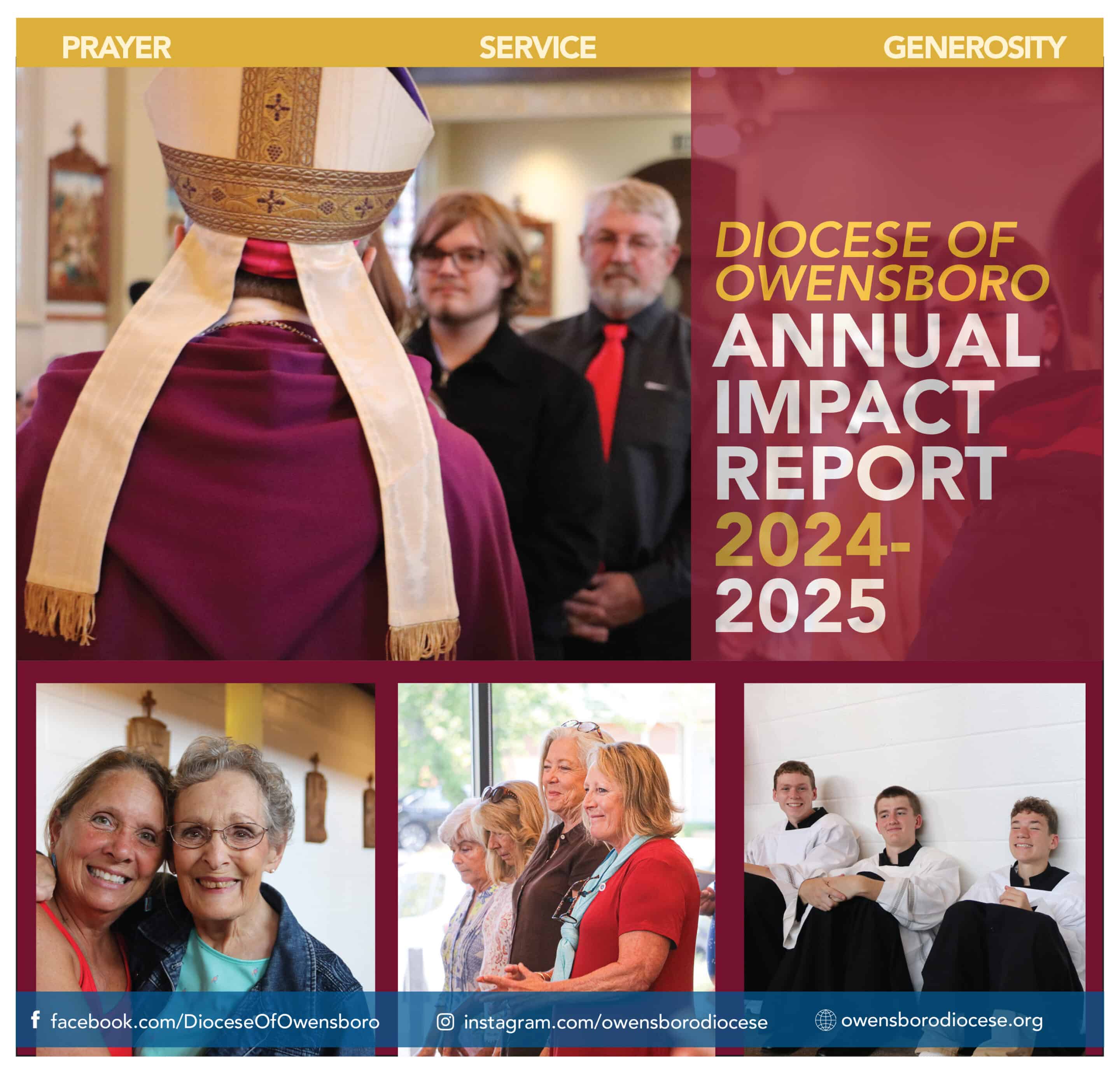
Bishop William F. Medley leads benediction during a Corpus Christi celebration at Sts. Joseph and Paul Parish in Owensboro on June 11, 2023. ELIZABETH WONG BARNSTEAD | WKC
Source & Summit: The Twenty-Fourth Sunday in Ordinary Time
(The faithful) taking part in the Eucharistic sacrifice, which is the source and summit of the whole Christian life, offer the Divine Victim to God, and themselves along with it.
-The Second Vatican Council fathers in Lumen Gentium, #11
Source & Summit is a feature of The Western Kentucky Catholic online, celebrating the National Eucharistic Revival: Year of Parish Revival. Intended to help Catholics of our parishes to probe the riches of our liturgical year and celebrate the liturgy well, the column will always start with the Bible readings for the Mass of the Day to help us reflect on, and help to “unpack” and expand our experiences at liturgy into the domestic church (the home) and the workplace.
Sunday reflections will be based on the Lord’s Day, the Liturgy, the Eucharist, and, occasionally, community.
Sunday, September 17, 2023:
Twenty-Fourth Sunday in Ordinary Time
https://bible.usccb.org/bible/readings/091723.cfm
Sirach 27:30—28:7
Psalm 103: 1—4, 9—12
Romans 14:7-9
Matthew 18:21—35
The Sabbath commandment is the longest, and in some ways, the most puzzling. Unlike any of the others it takes quite different forms in the two passages where the Ten Commandments appear. Both versions require the same behavior –work on six days, rest on one—but each gives a different reason. What is wonderful is that each reason arises from a fundamental truth about God’s relationship to humanity.
The Exodus commandment is to “remember” the Sabbath day is grounded in the story of Creation. The human pattern of six days of work and one of rest follows God’s pattern as Creator; God’s people are to rest on one day because God did. In both work and rest, human beings are in the image of God. At the same time, they are not God but God’s creatures, who must honor God by obeying his commandment.
In Deuteronomy, the commandment to “observe” the Sabbath day is tied to the experience of a people newly released from bondage. Slaves cannot take a day off; free people can. When they stop work every seventh day, the people will remember that the Lord brought them out of slavery, and they will see to it that no one within their own dominion, not even animals, will work without respite. Sabbath rest is a recurring testimony against the drudgery of slavery.
Together, these two renderings of the Sabbath commandment summarily the most fundamental stories and beliefs of the Hebrew scriptures: creation and exodus, humanity in God’s image and a people liberated from captivity. One emphasizes holiness, the other social justice. Sabbath crystalizes the Torah’s portrait of who God is and what human beings are fully meant to be.
-Dorothy Bass
To learn more about the Diocese of Owensboro’s celebration of the National Eucharistic Revival, visit https://owensborodiocese.org/eucharistic-revival/.


